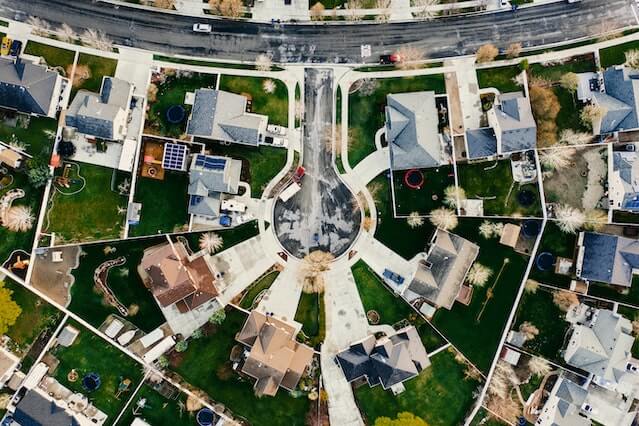Sometimes, you would purchase a property in a neighborhood that has a Homeowners Association (HOA). An The real estate industry regard HOA as a non-profit organization that manages and maintains a residential neighborhood. They primarily seek to preserve property values. They do this by enforcing laws and carrying out projects that enhance public spaces like playgrounds, parks, and the like.
Investors must understand the concept of HOA restrictive covenants and their implications. This is a must before they purchase a property that they intend to use for rentals. You are required to abide by them as soon as you purchase a home. These restrictive covenants govern various aspects of property use and appearance. This article aims to shed light on the significance of these covenants, their necessity, and potential downsides. Additionally, it will provide examples to help landlords navigate this aspect of property management.

What are HOA Restrictive Covenants?
HOA restrictive covenants are legally binding rules and regulations that property owners within a homeowners association must adhere to. As the name suggests, it limits their ability to engage in specific activities within their properties or make structural changes. These covenants may include provisions that prohibit residents from operating businesses from their homes, among other restrictions.
The property’s deed or a separate document known as the Declaration of Covenants, Conditions, and Restrictions (CC&R) typically includes these covenants. They are designed to maintain a harmonious living environment and preserve property values by regulating various aspects of property use, appearance, and behavior.
Implementing HOA Restrictive Covenants
The decision-making process for restrictive covenants involves the participation of the entire homeowner community, who vote on their implementation. However, it is the responsibility of the HOA board of directors to enforce these covenants. The extent and severity of the restrictive covenants can vary depending on the neighborhood. Some neighborhoods have more stringent regulations while others offer greater freedom to homeowners.
When a homeowner commits a violation, the HOA may impose fines and demand immediate resolution of the issue. Non-compliance by the homeowner can result in the HOA pursuing legal action to address the violation.
Why are HOA Restrictive Covenants Necessary?
HOA restrictive covenants serve several important purposes. Firstly, they help maintain consistency and aesthetic appeal throughout the community by regulating factors such as house color, architectural style, landscaping, and exterior modifications. An association may restrict the colors you can choose to paint the exterior of your home, for instance. Although it may seem insignificant, it actually stops “quirky” neighbors from using their homes as canvases for their artwork. Clean and well-kept rows of houses enhance the “curb appeal” of a neighborhood, which raises property values.
Secondly, HOA restrictive covenants often include provisions that promote peaceful coexistence and prevent nuisance. This can involve restrictions on noise levels, parking, and the presence of pets. Such regulations contribute to a more enjoyable living environment for residents and reduce potential conflicts between neighbors.
Furthermore, HOA restrictive covenants can safeguard property owners’ investments by prohibiting certain activities or uses that may negatively impact property values. For example, restrictions on commercial activities within residential areas can help maintain the intended purpose and atmosphere of the community.

Downsides to HOA Restrictive Covenants
While HOA restrictive covenants can provide significant benefits, it is essential to consider their potential downsides. One challenge is the potential limitation of individual freedoms and personal expression. These covenants dictate specific guidelines that property owners must follow, which may restrict their ability to modify their homes or use their properties as they wish.
Additionally, HOA restrictive covenants can be subjective, leading to differing interpretations and potential disputes. Enforcement mechanisms can vary, ranging from fines and penalties to legal action. Landlords and rental agents must be aware of these potential conflicts and engage in proactive communication with tenants to ensure compliance.
Examples of HOA Restrictive Covenants
- House Color: HOA restrictive covenants may specify approved color schemes or prohibit certain vivid or unconventional colors to maintain a uniform appearance throughout the community.
- Rent Restrictions: Some HOAs impose restrictions on rental properties within the community, including limitations on the number of rental units allowed or requiring landlord registration and approval processes.
- Business Usage: HOA restrictive covenants often regulate the use of residential properties for commercial purposes, such as home offices or operating businesses from the property. These limitations aim to preserve the residential character of the community.
- Pets: HOAs may establish guidelines regarding pet ownership, which may include restrictions on the number of pets, size or breed limitations, or requirements for leashing or supervising pets within common areas.
- Exterior Construction: HOA restrictive covenants often dictate guidelines for exterior modifications, such as the addition of decks, fences, or sheds. These regulations ensure that modifications align with the community’s architectural style and aesthetic.

HOA restrictive covenants play a vital role in maintaining order, consistency, and property values within homeowners associations. While they offer benefits such as preserving the community’s aesthetic appeal, promoting peaceful coexistence, and safeguarding property investments, it is important to strike a balance between these benefits and the potential limitations they impose.
Landlord Responsibilities
Landlords and rental agents should familiarize themselves with the specific HOA restrictive covenants applicable to their properties. By doing so, they can ensure compliance, avoid conflicts with the homeowners association, and provide accurate information to prospective tenants. Clear communication and transparency about these covenants with tenants can help set expectations and prevent misunderstandings.
Furthermore, landlords and rental agents should also consider the potential impact of HOA restrictive covenants on their property management strategies. Understanding the rent restrictions or limitations on rental units within the community can influence decisions on property acquisition, rental pricing, and tenant screening.
Final words
In conclusion, HOA restrictive covenants serve as an essential framework for maintaining the overall integrity and value of a community. While they may come with certain downsides and challenges, proactive engagement, adherence to the covenants, and open communication between landlords, rental agents, and tenants can lead to a harmonious and thriving living environment within the constraints of these restrictions.
Once you are aware of the rental policies set forth by your HOA, you are free to go to Padleads and post an advertisement for your homes. After uploading it, it’s simple to syndicate it to popular websites. Potential tenants would be more aware of it as a result.